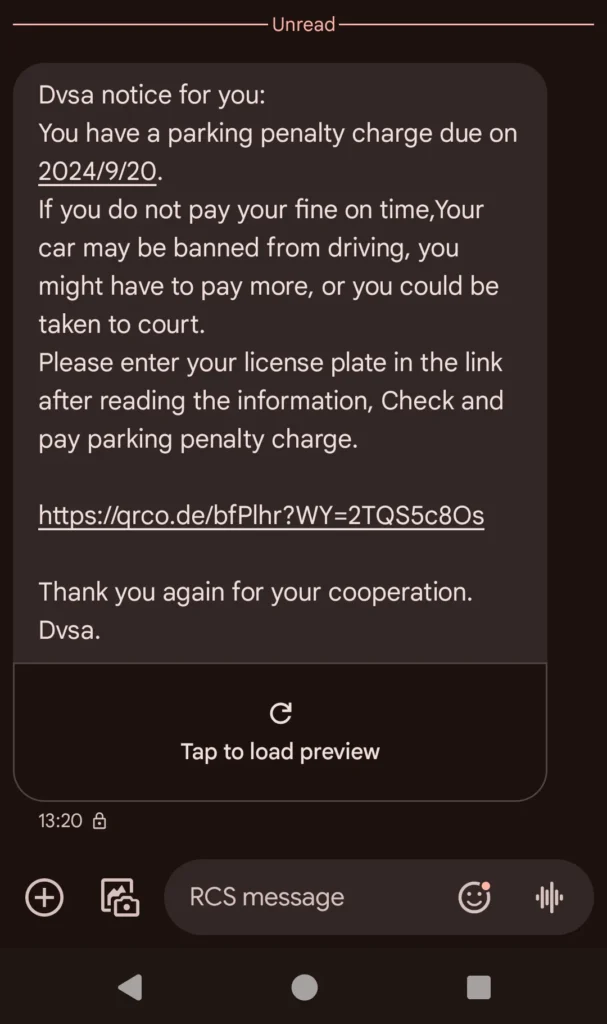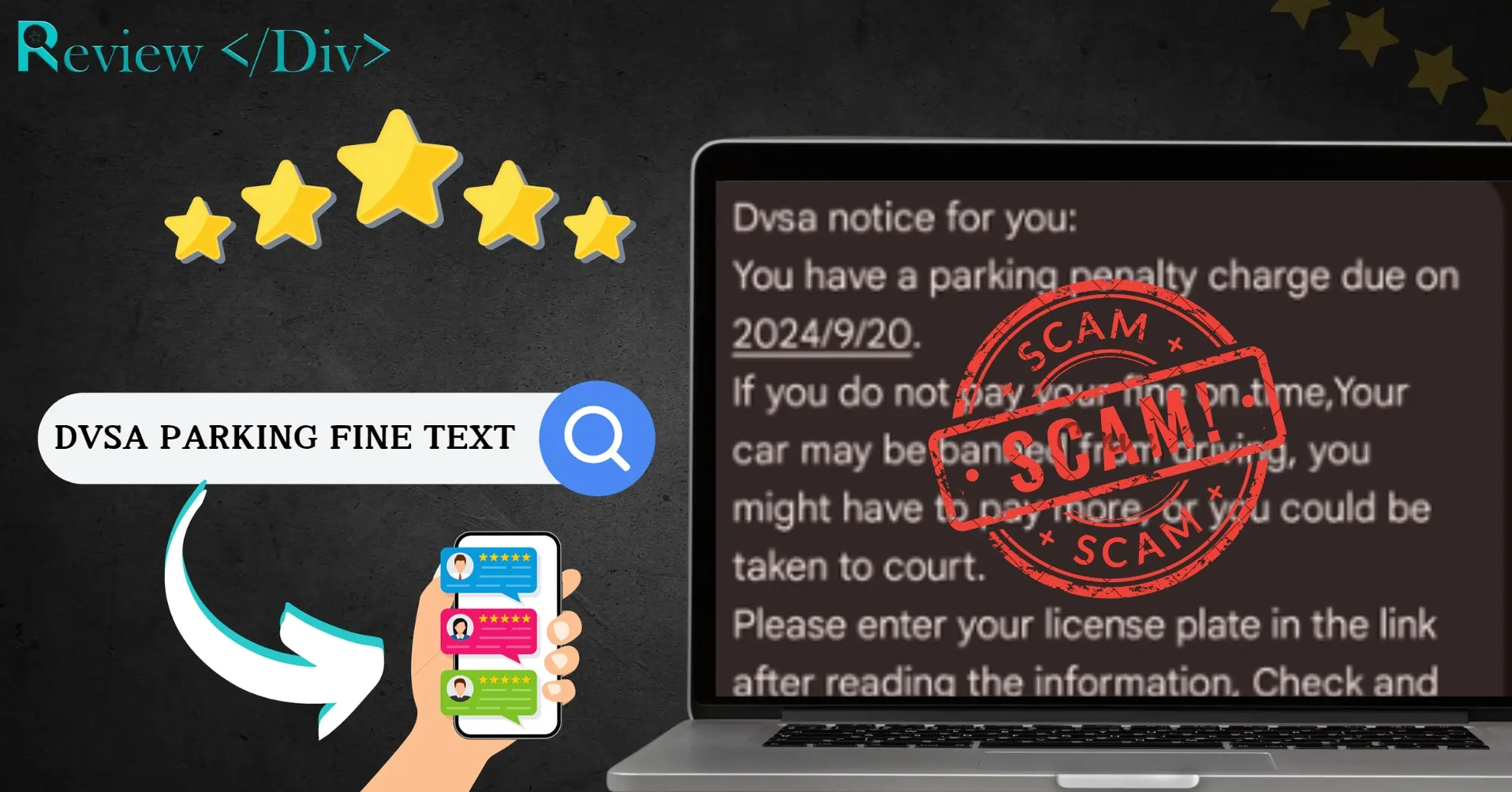The Driver and Vehicle Standards Agency (DVSA) has issued an important warning about a new scam that involves fake text messages claiming to issue parking fines.
As technology advances, these scams are becoming more effective, so it’s important to be aware of how they work.
In this post, we will explain the details of the DVSA parking fine scam, how it operates, and what to do if you fall victim.
Scam Overview
The DVSA’s warning is a scam where fraudsters send text messages telling people they owe a parking fine. These messages include threats, warning that failure to pay could result in serious consequences, like being banned from driving or facing legal action.
The Message Includes:
DVSA notice for you: You have a parking penalty charge due on 2024/9/30. If you do not pay your fine on time, your car may be banned from driving, you might have to pay more, or you could be taken to court. Please enter your license plate in the link after reading the information. Check and pay parking penalty charge. Thank you again for your cooperation. DVSA.
However, the DVSA has clarified that they don’t issue or handle parking fines, confirming that any such message is a scam. These messages are created to look urgent and rough which tricks drivers into taking quick and uninformed action.
How Does DVSA Parking Fine Text Scam Work?
Scammers use different tactics to make their fake messages seem legitimate. They start by sending a text that appears to come from the DVSA from unknown numbers.
These messages use official-sounding language to create the illusion of authenticity. The message usually claims the recipient has an unpaid parking fine and must pay it soon.
This urgency pressures the victim to respond quickly, with threats like having their car banned if they don’t pay.

Moreover, the scam message includes a link that directs the recipient to a fake website, which looks like an official government page. Once there, victims are asked to provide personal details, such as their vehicle registration and payment information.
This information is then collected by scammers, who use it for identity theft or financial fraud. By making the message feel urgent and authentic, scammers manipulate victims into giving away sensitive information without realizing the danger.
What To Do If You Fall For DVSA Parking Fine Text Scam?
If you’ve been targeted by this scam, it’s important to act quickly and carefully. Here are some things you should do.
Report the Scam: Forward the suspicious message to the National Cyber Security Centre (NCSC) through their official channels. This helps authorities track and stop these scams.
Contact Your Bank: If you’ve shared any financial information, contact your bank immediately for help in securing your accounts.
Check Your Accounts: Check your bank statements and online accounts for any unusual activity.
Report Financial Losses: If you’ve lost money or think your details have been stolen, report this to Action Fraud (www.actionfraud.police.uk) or call 0300 123 2040 in England, Wales, or Northern Ireland. In Scotland, contact Police Scotland at 101.







